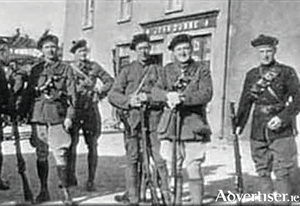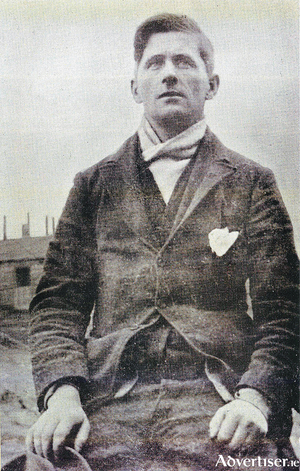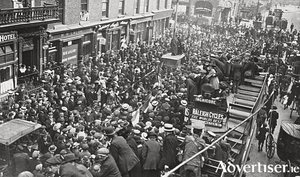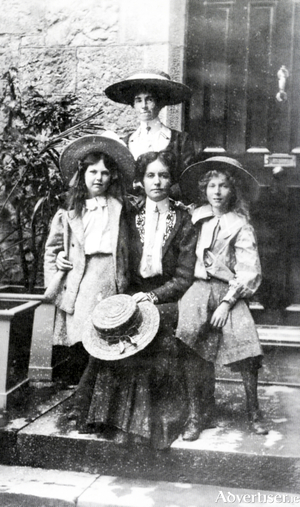Search Results for 'professor of Romance languages'
7 results found.
Michael Collins remembered a debt for ‘measly £10’
An Taibhdhearc, Ireland’s only Irish language theatre, situated in Middle Street, the very heart of Galway, grew out of a conversation between two remarkable men, Professor Liam Ó Briain and Dr Séamus Ó Beirn.* Both men, passionate Irish speakers, believed that a lively Irish language theatre would promote Irish in an imaginative way.
Friends in strange places.

Our friend ‘Captain H’ who had ingeniously planted a dictaphone in the confessional under the stairs in the Town Hall prison, was up to his old tricks again. Somehow he had managed to plant a ‘friendly’ Sergeant Gates who chatted and smiled, and was a friend to all, and dangerously caught numerous snatches of conversation from the hundreds of prisoners within. These were reported to Captain H.
Grief and despair on Galway streets November 1920
Sunday November 21 1920, known as ‘Bloody Sunday’, marked one of the most significant events in the Irish War of Independence. The day began with an IRA operation, organised by Michael Collins, to assassinate the so called ‘Cairo Gang’ - a team of undercover British agents, working and living in Dublin. IRA members went to a number of addresses, and shot dead 14 people including nine army officers.
Liam Ó Briain, Irish rebel

Liam Ó Briain was born in Dublin in 1888. In 1916 he helped print the Proclamation and he served with Michael Mallin in the College of Surgeons during the Rising. He was subsequently interned in Wandsworth Prison and in Frongoch. In 1917 he was appointed professor of romance languages in UCG. He was jailed in Belfast in 1919/20. When he returned to Galway he was appointed as a judge in the Republican Courts In late 1920, he was having dinner in college when he was arrested by the Black and Tans, and jailed for 13 months in Galway and the Curragh. Some of his experiences in prison are vividly described in a recently published book.
Liam Ó Briain - Memories of the Easter Rising

One of the real benefits of the the centenary commemorations of 1916, is the amount of research and new material that has been published on the background to the Rising, and in particular on the personalities of the men and women involved.



